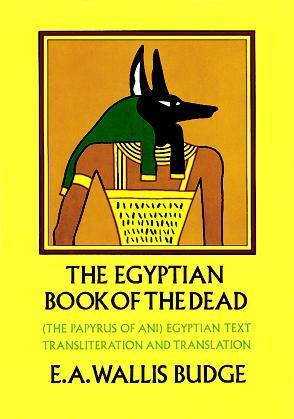The Egyptian Book of the Dead Book Summary
TL;DR
The Egyptian Book of the Dead is an ancient text that provides comprehensive instructions for the deceased's journey in the afterlife, serving as a vital cultural and religious cornerstone for thousands of years.
What is The Egyptian Book of the Dead about
The Egyptian Book of the Dead is a collection of ancient Egyptian funerary texts, composed of magical spells and instructions meant to guide the deceased through the afterlife. It is believed to have been compiled during the 16th century BCE, with roots tracing back to earlier traditions, including the Coffin Texts. The text's significance lies in its dual role as both a religious and magical guide, reflecting the Egyptians' belief in the intertwined nature of the two practices. Dr. E.A. Wallis Budge's discovery of a complete version known as the Papyrus of Ani in 1888 provided invaluable insight into this complex belief system, rendering the book a crucial resource for understanding ancient Egyptian civilization and its views on mortality, the soul, and the divine.
The Egyptian Book of the Dead 8 Key Takeaways
Purpose of the Text
The Book of the Dead was intended to assist the deceased in navigating the afterlife, offering spells and rituals that ensured protection, guidance, and ultimate resurrection in the Land of the Gods.
Concept of the Soul
Central to the text are the concepts of the ka and ba, representing different aspects of the soul. The ka is the life force, while the ba is the personality that continues to exist after death, emphasizing the Egyptians' belief in the immortality of the soul.
Role of Magic
For the ancient Egyptians, magic was an essential element of life and death; the spells within the Book of the Dead were considered powerful tools for influencing divine forces and the afterlife journey.
Afterlife Journey
The Book portrays the afterlife as a perilous journey filled with challenges, where the deceased must pass tests and confront deities, ultimately seeking entry into paradise, reflecting the Egyptians' views on morality and divine judgment.
Religious Significance
The text embodies the theological and cosmological beliefs of ancient Egypt, illustrating the relationship between humans and gods, and highlighting the importance of rituals, offerings, and prayers.
Cultural Legacy
The Egyptian Book of the Dead has influenced not only ancient Egyptian culture but also modern understandings of spirituality and the afterlife, cementing its status as one of history's most significant literary works.
Hieroglyphic Preservation
The book’s preservation in hieroglyphs on tombs and papyrus signifies the importance of these texts in ensuring the deceased's safe passage, showcasing the Egyptians' dedication to their religious practices.
Variability of Texts
Different versions and recensions of the Book of the Dead existed, reflecting diverse regional beliefs and practices, which allowed for personal modifications tailored to individual needs in the afterlife.
Top The Egyptian Book of the Dead Quotes
- "Death is but the beginning of a new journey into the eternal realm of the gods."
- "The heart of the deceased is weighed against the feather of Ma'at, symbolizing truth and justice."
- "To the great awakening, the journey continues beyond the grave, where one must face the gods."
Who should read The Egyptian Book of the Dead?
The Egyptian Book of the Dead is ideal for readers interested in ancient civilizations, spirituality, and religious studies. Its rich insights into Egyptian beliefs about the afterlife and the interplay of magic and religion provide profound inspiration and understanding for both scholars and casual readers alike.
The Egyptian Book of the Dead Best Reviews
- "A monumental guide to the Egyptian belief system regarding life after death, the Book of the Dead remains a crucial resource for understanding ancient Egyptian spirituality." – The New York Times
- "Budge's translation and commentary provide a fascinating glimpse into a complex civilization's life and afterlife beliefs, making it an essential read for both scholars and enthusiasts." – The Guardian
People also liked these summaries
The Egyptian Book of the Dead FAQs
What is written in the Book of the Dead?
The Book of the Dead contains a collection of spells and rituals intended to aid the deceased in the afterlife, ensuring protection and guidance through various challenges.
Is the Book of the Dead a religious book?
Yes, the Book of the Dead serves both religious and magical purposes, embodying the ancient Egyptians' belief in the afterlife and the importance of rituals to influence the divine.
What does the Book of the Dead teach us?
It provides insights into ancient Egyptian beliefs about the soul's immortality, the concept of judgment after death, and the practices necessary to navigate the afterlife successfully.
